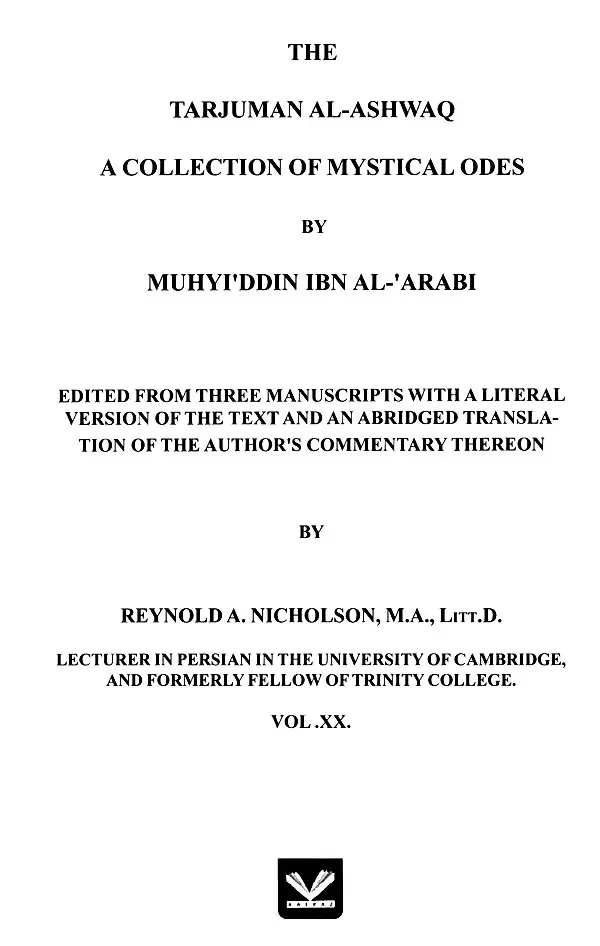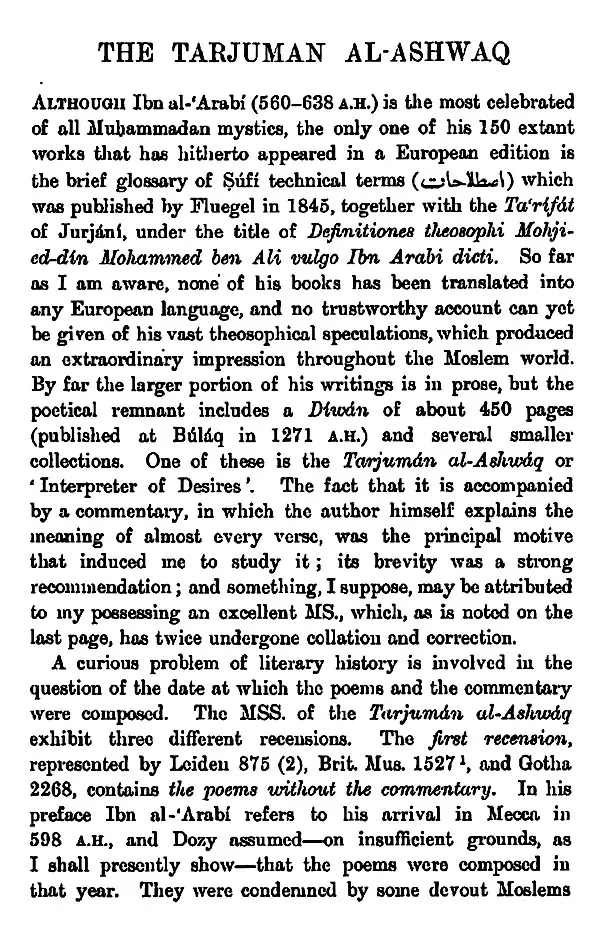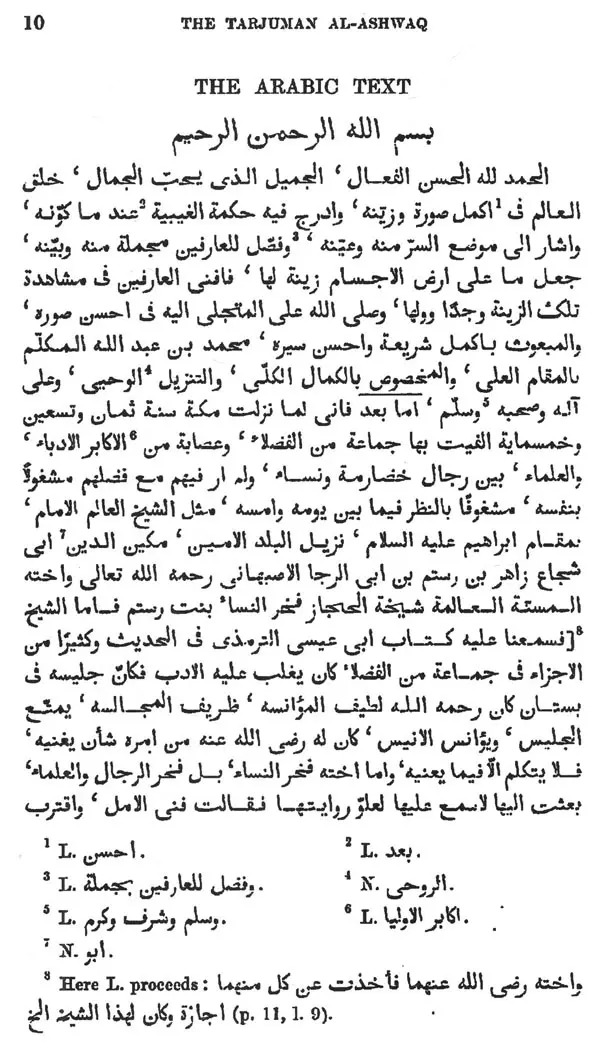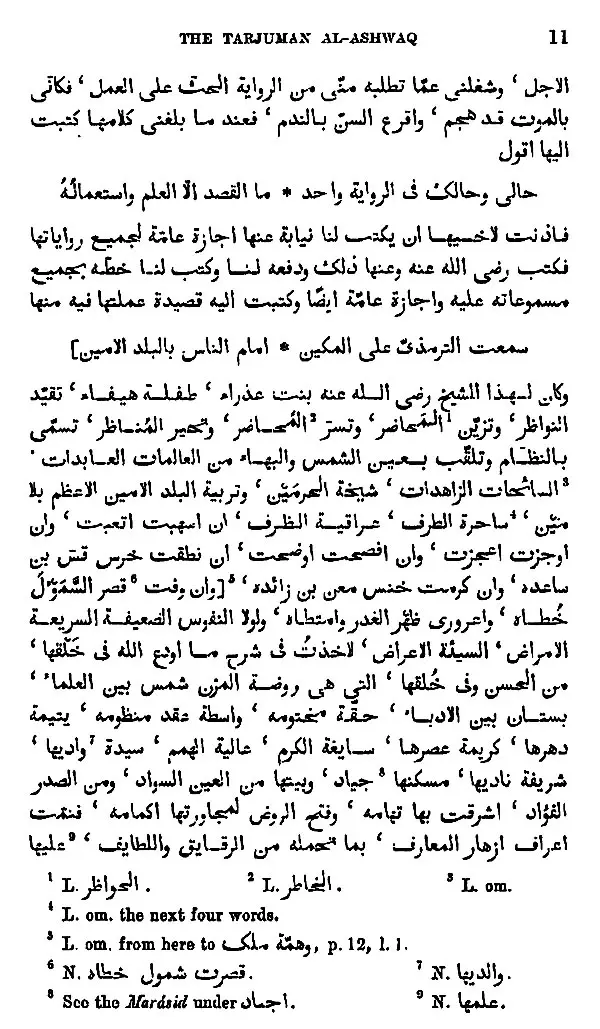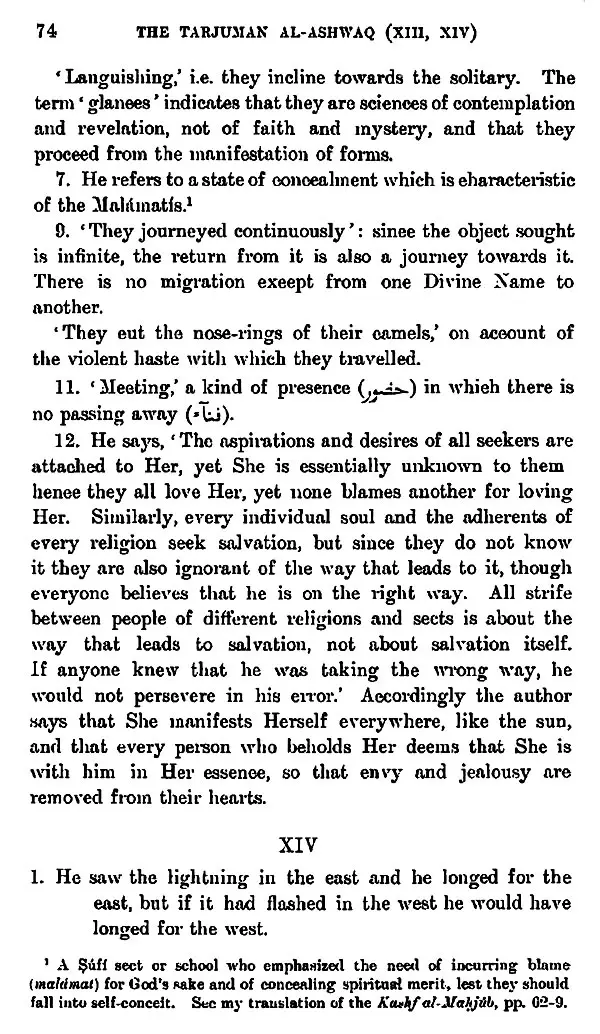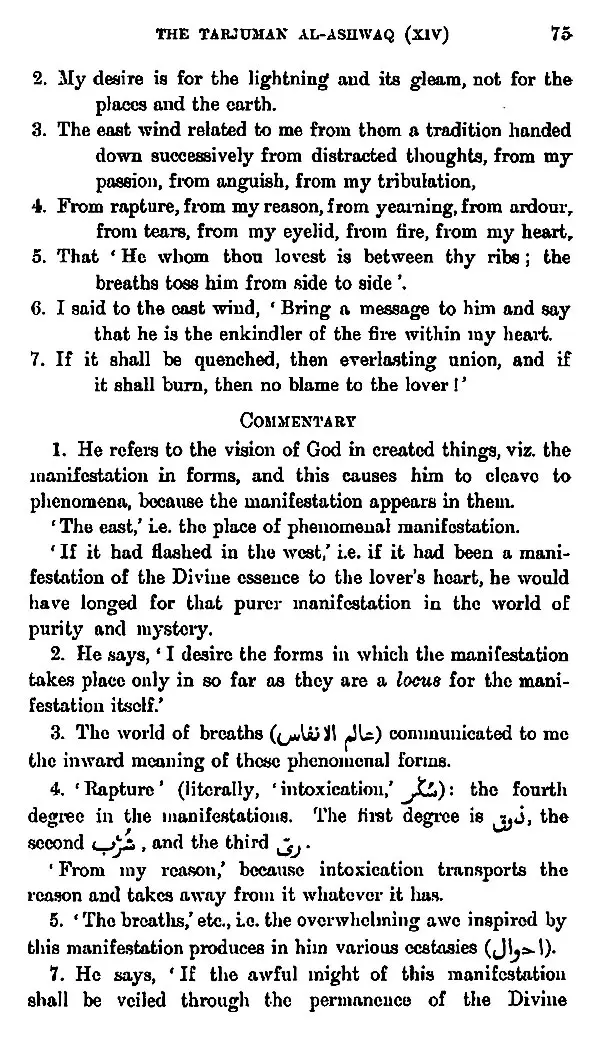
The Tarjuman Al-Ashwaq- A Collection of Mystical Odes
Book Specification
| Item Code: | UAM770 |
| Author: | Muhyi'Ddin Ibn Al-Arabi |
| Publisher: | Kalpaz Publications |
| Language: | Arabic and English |
| Edition: | 2017 |
| ISBN: | 9789351287520 |
| Pages: | 162 |
| Cover: | PAPERBACK |
| Other Details | 8.50 X 5.50 inch |
| Weight | 200 gm |
Book Description
WHATEVER view may be taken of the respective merits of Arabic and Persian poetry, I think it will generally be allowed by those familiar with the mystical literature of both nations that the Arabs excel in prose rather than in verse, while the Persian prose-writers on this subject cannot be compared with the poets. Farídu'ddín 'Attar, Jalalu'ddin Rumí, Hafiz, and Jami-to mention only a few of the great Persian poets whose works, translated into various languages, have introduced the religious philosophy of Sufiism to a rapidly widening circle of European culture are as much superior to their Arab rivals, including even the admirable Ibn al-Farid, as the Futuhat al-Makkiyya and the Fusus al-Hikam are superior to similar treatises in Persian. The Tarjumun al Ashwaq is no exception to this rule. The obscurity of its style and the strangeness of its imagery will satisfy those austere spirits for whom literature provides a refined and arduous form of intellectual exercise, but the sphere in which the author moves is too abstract and remote from coinmon experience to give pleasure to others who do not share his visionary temper or have not themselves drawn inspiration from the same order of ideas. Nevertheless, the work of such a bold and subtle genius deserves, at any rate, to be studied, and students will find, as a reward for their labour, Inany noble and striking thoughts and soine passages of real beauty. The following lines are often quoted. They express the Sufi doctrine that all ways lead to the One God.
My heart has become capable of every form; it is a pasture for gazelles and a convent for Christian monks, And a temple for idols and the pilgrim's Ka'ba and the tables of the Tora and the book of the Koran.
I follow the religion of Love: whatever way Love's camels take, that is my religion and my faith.
